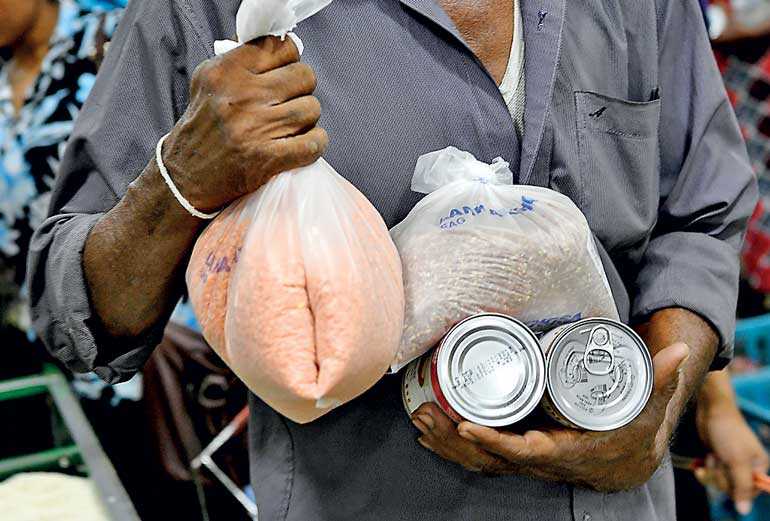Thursday Feb 19, 2026
Thursday Feb 19, 2026
Tuesday, 16 March 2021 01:57 - - {{hitsCtrl.values.hits}}

One year into the pandemic, the Index finds that consumers will still prioritise affordability (32%) and health (25%), over the planet (17%), society (14%) and experience (12%) in the future – Pic by Shehan Gunasekara
The sixth EY Future Consumer Index, a survey of 14,500 consumers across 20 countries fielded in January-February 2021, finds that consumers are more worried than four months ago about their health, their families and their futures.
One year into the pandemic, the Index finds that consumers will still prioritise affordability (32%) and health (25%), over the planet (17%), society (14%) and experience (12%) in the future.
Consumers are more concerned, not less
The share of people who think they will live in fear of the COVID-19 pandemic for at least another year has risen from 37% (October 2020) to 40% (February 2021), despite vaccines being rolled out.
The Index also finds that because of the pandemic, people are increasingly concerned about the health of their family, access to necessities, personal finances and basic freedoms. The level of concern differs around the world. Respondents in India and Brazil have consistently been the most concerned overall (more than 90% of consumers) throughout the pandemic, while people across other countries are now more worried about their family’s health than they were four months ago (up 4% in the US and 5% in Japan). Respondents in China and Germany said they are increasingly worried about their finances (4% increase) and freedom to enjoy life (more than 10% increase), since October 2020.
EY Global Consumer Leader Kristina Rogers says: “One year into the pandemic, almost half of consumers believe post-vaccine life will be better than before the pandemic. In fact, the COVID-19 pandemic may have accelerated changes that were already underway: moving out of cities, shopping online more and prioritising health, affordability and sustainability. Companies now need to understand where consumers are going next and be bolder in accelerating their transformation, by redesigning their business around how people live, not what they buy.”
Sentiment about the COVID-19 vaccine varies across geographies and income groups
Most (91%) global respondents do intend to take the vaccine, but 25% said they have “reservations” and 9% don’t intend to take it at all. The latter goes up to 15% in the US and 19% in France but down to 3% in China, 5% in Brazil and 6% in the UK. Top reasons influencing global sentiment include being worried about potential side-effects (29%) and not trusting its safety (19%).
Feelings about the vaccine are also polarised between high- and low-income consumers, which correlates with institutional trust. According to the global survey, only 43% of low-income respondents plan to get the vaccine as soon as it is available to them (compared to 54% of high-income respondents). This may relate to 37% of low-income respondents having little or no trust in government compared to 28% of high-income respondents.
Despite concerns, a majority of respondents (56%) would be more likely to shop with retailers that require employees to take the vaccine, while 48% of respondents think that those who refuse to take the vaccine are acting selfishly.
Most consumers will prioritise affordability or their health
Beyond the pandemic, affordability (32%) and health (25%) will remain priorities for consumers when shopping. This is aligned with responses from June 2020, when 30% of respondents said they will focus on affordability and 26% on health, over sustainability, societal impact and experience.
Arjuna Herath, EY Consulting Leader for Sri Lanka and Maldives commenting on the study stated “The COVID-19 pandemic has changed consumer behaviour and has not just driven “consumption at home” through e-commerce. Consumers are now building their whole lifestyles around their homes as centres of gravity where they work, play and stay healthy.”
More than half of respondents (56%) plan to stay fit at home beyond the pandemic, while a third (33%) plan to upgrade appliances and furniture and 30% hope to work more from their home in the future.
The latest edition of the EY Future Consumer Index is available at ey.com/futureconsumerindex6.